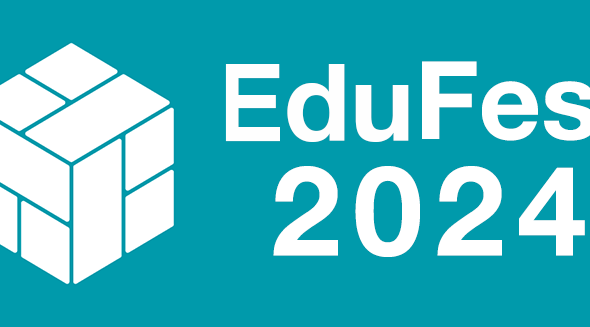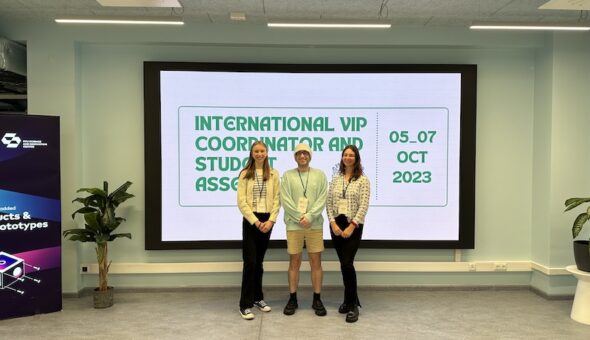With courses reviewing assessment and learning and teaching strategies as part of Curriculum Transformation, there has never been a better time for us to think about how we engage students in peer learning and working in teams. Much of the success of these dynamics (and key to effective transition) comes from how teams are initially set up.
Dr Steve Cayzer and his teaching team (including two doctoral students) let me observe the first teaching session of the PGT unit on Engineering Project Management, which involved Team Based Learning (TBL).
TBL is a powerful way of peer learning; students are required to complete work before class which is tested during the session individually and in their team. Students then work on an activity where they apply their knowledge together.
I was struck by how much Dr Cayzer valued the contributions of his entire teaching team. A simple method: provide biographies of your teaching team on Moodle in advance and explicitly value your team’s different backgrounds and experiences, introducing each one in person at the first session. Though they have different roles, I felt there was very much a sense of a teaching ‘team’ where the doctoral students were just as valued as the experienced lecturers. This was a useful way of modelling the benefits of a diverse team, a key concept that students engage with throughout the unit.
Rajan Jagpal, teaching team member and doctoral student in Mechanical Engineering, said he really valued the opportunity to facilitate TBL for his own development:
‘Supporting teaching on these team-based learning units has made me reflect on my own role within a team and how I can be a better collaborator and a more respectful researcher.’
After introductions to the Intended Learning Outcomes for the session, Dr Cayzer reflected with the students on why they would be taught via TBL, including the goal ‘you will be a high-performing team by the end of this semester’!
How students are allocated into teams is always of interest. At induction, students filled out a questionnaire which allowed them to be allocated into teams. During the session, Dr Cayzer explained why and how the teams had been allocated and emphasised the value of diversity within a team.
Then came the start of what some may fear: the ‘techy’ bit. Students logged on to do their online readiness protocol, the first of a number of tests they would complete during the session. Dr Cayzer carefully spent time clarifying what source material could and couldn’t be used, and when students could (and should) seek the help of team members. This was another way of building on student induction and academic integrity content. There was paper back-up for test questions if technology failed, and an effective way of recording team answers with coloured voting cards.
Pre-reading and content for the in-class individual and team tests was cleverly framed to encourage student reflection on the value of TBL and conflict in teams, to check for understanding of key content and assessment methodologies, and to point forward to topics in the next session. Discussion of the teams’ answers to the first application activity ‘why team performance is better than individual performance’ required students to explain why they had chosen their answers, and to explore where they may have been conflicted within or across teams.
Throughout the session, the teaching team dealt with student questions and concerns and they each had specific teams to observe for engagement levels and any problems emerging. Reflections are followed up regularly by the teaching team and they can adjust their teaching practice as needed, thus calibrating sessions to their needs and the needs of all their learners.
The session concluded with an activity where each team created a team contract. A suggested format and example rules for expected behaviour were provided, and ideas for consequences if rules were broken. Students could add or modify rules and consequences. Teams worked together to write their contract; here are the rules teams highlighted as their favourites:
- Be honest
- If you can’t get it done, contact your team members and ask for help
- There are no bad or silly ideas
- Be active and participate
- Make sure you have prepared for the session
- Be punctual
- Have a different team leader each week
- Be polite and respect each other
- Check the understanding of other team members
- Set common team goals
One of the simplest but most powerful consequences was ‘Apologise to the other members of the team if rules are broken’. This contract exercise feeds forward to a fuller ‘project charter’ assignment later on. Sally Palethorpe rounded off the session, encouraging students to:
- Notice when people aren’t engaging
- Be active listeners
- Think about where and how to give good feedback in the moment, so issues don’t escalate
- Share something about yourselves, to understand the strengths of your team
I think a lot in my role about how we can join up learning and teaching with inclusion-related initiatives in the University. Getting students to create their own team contract, effectively a self-defined code of conduct, reinforces messages from induction around the #NeverOk campaign, how we should be holding each other to account and calling out unacceptable behaviour. Getting the team to outline consequences of transgressing rules is a vital part of expectation setting and giving a sense of our values.
Dr Cayzer reflected: ‘The team contract exercise starts to develop a sense of accountability and responsibility in students’ behaviour to others, a fundamental part of them succeeding on their course as independent learners and as members of the University community.’
Want to explore further?
If you are interested in joining the Bath Team Based Learning community of practice, get in touch with Dr Steve Cayzer on sc579@bath.ac.uk. If you are interested in supporting effective transition through curriculum, contact Dr Eleanor Parker on e.parker@bath.ac.uk.
Sign up to the CLT newsletter for events, workshops and resources on these themes at: clt@bath.ac.uk.
Respond



